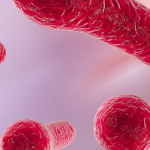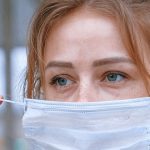In 2015 Dr Sophie Williams, University lecturer from Bangor in the UK contracted Japanese Encephalitis whilst conducting field research in China. After spending weeks in a coma in Bangkok she returned home but now needs 24 hour care and in on a ventilator.
Who is at risk? Where is it found? What are the symptoms? How can you protect your health when you are travelling? are just some of the questions asked so we have put together the 7 things you need to know about Japanese Encephalitis when traveling to risk areas.
1. You don’t have to be in Japan to catch Japanese encephalitis
Current risk areas occur throughout most countries in East and South East Asia and Western Pacific regions. China accounts for 50% of cases.

2. There is low likelihood of catching the disease but its impact can be highly severe
Around 68,000 cases of Japanese encephalitis are documented each year, with around 13,600 to 20,400 deaths. Of those who survive, it is estimated that 30-50% will develop long term problems. Anyone can get Japanese encephalitis in risk areas, but it primarily affects children as most adults get natural immunity after a childhood infection.
3. You will be at a higher risk outside of urban areas
Japanese encephalitis is transmitted to humans from wading birds and pigs through the bites of infected Culex spp. Mosquitos. These mosquitos are more prevalent in marshlands and in rural areas when people cultivate rice and farm pigs. Transmission intensifies during rainy seasons.
4. Most Japanese encephalitis infections do not cause any symptoms
If you do get symptoms, they are likely to be a fever, headache, nausea and perhaps convulsions. In severe cases there may be seizures and coma as the virus caused inflammation of the brain.
5. There is no treatment for Japanese encephalitis
The focus is on good supportive care to manage the symptoms which may increase a person’s comfort and help prevent any further complications.
6. Vaccination is the best way to prevent infection
The UK has one licensed vaccine which is inactive, this means that it can not cause the disease in people. The vaccine requires two doses 28 days apart and is effective 7 days after the second dose. The vaccine cannot be given to children under 2yrs. If you regularly travel to risk areas, you may be advised a booster jab after 10 years.
When travelling it is also good practise to use DEET insect repellent and cover up exposed skin with long sleeves and trousers to reduce the risk of being bitten. Mosquitos are more active at dawn and dusk so try to avoid these times, keep air circulating and use a net at night.
7. Get assessed by a trained travel clinician 12 weeks before departure
Stay healthy on holiday by talking to a trained travel health nurse of your GP will be able to look at where you are travelling to, your length of stay, itinerary and planned activities, and provide you with recommended travel vaccinations and antimalarial advice.
It is important to keep up to date with all of your regular vaccinations when at home and travelling. Vaccines train your body’s immune system to recognise and destroy specific diseases before you have been infected by it naturally, providing immunity.
If you go without vaccinations you are leaving yourself open to contracting a variety of dangerous diseases such as diphtheria or even yellow fever, increasing the chance of severe illness. These deadly diseases could then make a return, potentially killing millions and requiring significant resources to combat the outbreak.
DocHQ Ltd is a Health Tech company improving choices. We help you connect efficiently to health support and advice whether you are at home, work or travelling. See our website for our services or call us on 0330 088 0645.



